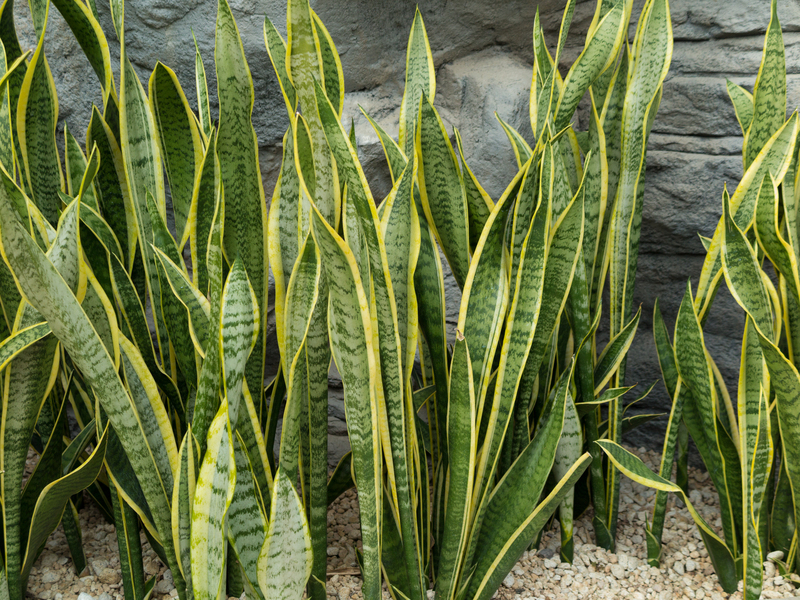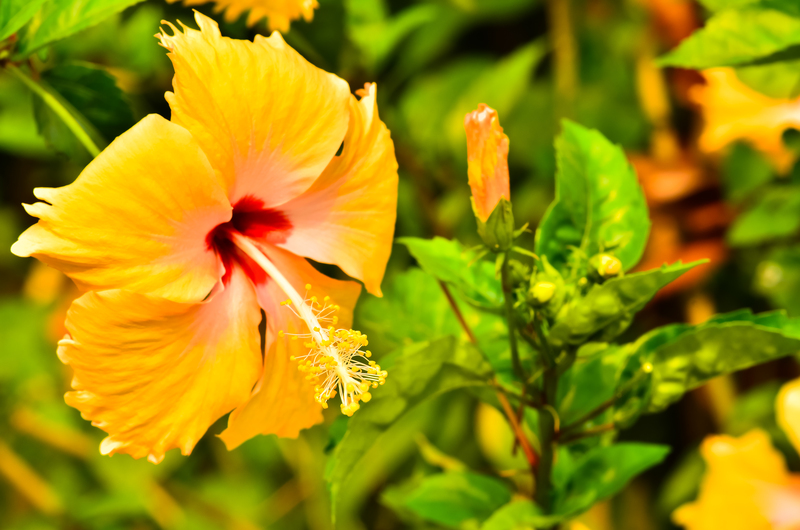Gain Confidence in Gardening with 9 Essential Beginner Tips
Posted on 27/05/2025
Gain Confidence in Gardening with 9 Essential Beginner Tips
If you've ever dreamed of cultivating your own lush garden but weren't sure where to start, you're not alone. Gaining confidence in gardening is a journey, and it's entirely possible for anyone, regardless of experience level. Whether you want to create a small herb patch or a vibrant flower bed, the secret lies in following some essential gardening tips for beginners. Read on for a comprehensive guide that will help you grow your gardening skills and nurture your green thumb.
Why Building Confidence in Gardening Matters
Confidence in gardening transforms the experience from intimidating to enjoyable. Many aspiring horticulturists hesitate due to fear of failure, uncertainty in plant care, or lack of knowledge. However, with the right guidance and key insights, even absolute beginners can turn their outdoor (or indoor!) space into a thriving oasis.
Gardening offers numerous benefits:
- Promotes relaxation and mindfulness
- Boosts your mental and physical health
- Provides fresh, organic produce right at home
- Enhances your property's beauty and value
- Fosters a sense of achievement and pride

9 Essential Beginner Gardening Tips to Build Your Confidence
Ready to cultivate your knowledge and grow your skills? Here are the nine most important gardening tips for novices who want to gain confidence in gardening and enjoy success from the very beginning:
1. Start Small & Simple
It's tempting to transform your entire backyard at once, but beginning with a manageable project builds confidence and reduces overwhelm.
- Choose one or two small garden beds or containers.
- Opt for easy-to-grow plants such as herbs, lettuce, or marigolds.
- Learn the basics with a few healthy, robust plants before expanding your garden area.
By focusing on simplicity, you give yourself permission to learn, make mistakes, and enjoy each small success on your gardening journey.
2. Understand Your Local Climate and Conditions
Gardening confidence grows when you select plants that are well-suited to your region's climate, weather patterns, and seasons.
- Research your USDA Hardiness Zone or equivalent, to discover which plants will thrive in your area.
- Pay attention to sunlight, rainfall, and seasonal temperature ranges.
- Ask local garden centers or fellow gardeners for advice.
Matching your plant choices to your unique environment dramatically increases your odds of garden success.
3. Choose the Right Soil - The Foundation of All Gardening
Soil quality can make or break your garden's performance. Take time to build a strong foundation, and you'll reap the rewards season after season.
- Test your soil's pH and texture--many garden retailers offer low-cost kits.
- Amend your soil with organic material like compost, peat moss, or well-rotted manure to enhance fertility and drainage.
- Avoid soils that are too sandy or heavy with clay unless you condition them appropriately.
Confident gardeners regularly improve their soil, knowing it's the secret to vibrant, resilient plants.
4. Water Wisely for Healthy Growth
It's easy to overwater or underwater when you first start gardening. Understanding your plants' unique needs gives you confident control over their well-being.
- Stick your finger about an inch into the soil; if it feels dry, it's time to water.
- Water at the base of the plant, in the morning whenever possible, to prevent disease and maximize absorption.
- Use mulch to retain moisture and suppress weeds.
Practice makes perfect. With time, you'll develop an intuitive sense for how much water your garden needs.
5. Learn the Basics of Plant Care
Plant maintenance doesn't need to be daunting. Understanding core care techniques builds your gardening self-assurance and keeps your green friends thriving.
- Fertilize regularly with organic or slow-release products designed for your type of plant.
- Prune or deadhead flowers to encourage healthy growth and more blooms.
- Inspect plants for signs of pests or disease and address issues early.
- Stake or support tall or vining plants to protect them from wind and rain.
Document what works and what doesn't in a gardening journal--the best gardeners are always learning!
6. Embrace Gardening Mistakes as Learning Opportunities
Every master gardener started as a beginner. Mistakes are not just inevitable--they're invaluable.
- Don't be discouraged by plants that fail to thrive. Analyze what went wrong and try a different approach.
- Keep experimenting with plant varieties, layouts, and care routines.
- Join gardening forums or social groups online or locally to share experiences and learn from others.
Remember, every setback is a step toward greater confidence in gardening.
7. Prepare and Use the Right Tools
Having the proper equipment not only makes gardening easier--it makes you feel like a true gardener! Invest in quality, ergonomic tools to boost your confidence and prevent frustration.
- Basic essentials include: trowel, hand fork, pruners, gloves, watering can, and a kneeling pad.
- Clean tools after each use to extend their life and prevent the spread of disease.
- Store tools in a dry, accessible place for convenience and safety.
A well-equipped gardener is a confident gardener--no more searching for lost tools or battling rusty blades!
8. Familiarize Yourself with Local Pests and How to Manage Them
Beginner gardeners often worry about pests wreaking havoc on their hard work. Proactively learning about common garden insects, both beneficial and harmful, can bolster your gardening confidence.
- Identify friend and foe: Ladybugs, bees, and spiders are good, while aphids and slugs often require control.
- Use organic control methods such as hand-picking, neem oil, or row covers rather than resorting to harsh chemicals.
- Encourage natural predators by planting a variety of flowers and herbs.
Understanding the balance of your garden's ecosystem empowers you to act confidently, protecting your plants and the environment.
9. Stay Curious, Keep Learning, and Celebrate Your Progress
The most important tip for any beginner is to maintain a sense of curiosity and wonder. Gardening is an ever-evolving skill, and your confidence will flourish along with your plants.
- Read books, websites, and blogs dedicated to gardening tips for beginners.
- Attend workshops, community classes, or virtual events on seasonal gardening.
- Mark your milestones: Take photos, track harvests, and proudly share your growth with friends and family.
With each new season, your experience will grow along with your blooms, helping you become an ever more confident and knowledgeable gardener.

Bonus Tips to Enhance Your Beginner Gardening Confidence
- Label plants clearly to help remember what's where and track progress over time.
- Start a garden calendar for sowing, watering, and fertilizing reminders.
- Connect with local gardening clubs for personalized advice and camaraderie.
- Consider container gardening or raised beds for better control--perfect for small spaces or urban settings.
- Don't rush! Gardening is a journey, not a race. Enjoy the small moments and gradual progress.
Final Thoughts: Growing Your Gardening Confidence
Taking your first steps as a gardener can feel daunting--but every towering sunflower and basket of homegrown vegetables starts with a modest seed (and a curious mind). By following these 9 essential tips for beginner gardeners, you'll lay a strong foundation for ongoing success. As your plants flourish, so will your confidence and enthusiasm for your blossoming hobby.
Remember, gaining confidence in gardening is all about patience, practice, and growing alongside your plants. Start small, celebrate your victories, learn from your losses, and--above all--enjoy the journey. Happy gardening!
Frequently Asked Questions for Beginner Gardeners
-
What are the easiest plants to grow for beginners?
Some of the easiest plants for novice gardeners include basil, mint, cherry tomatoes, lettuce, pansies, and zinnias. -
How often should I water my new garden?
This depends on your climate, soil type, and plant selection, but in most cases, a deep watering once or twice a week is preferable to daily shallow watering. -
Should I use organic or chemical fertilizers?
Organic fertilizers are typically gentler for beginners and safer for the environment, while still providing excellent results. -
How do I keep pests from ruining my plants?
Focus on prevention, healthy soil, companion planting, and organic solutions like neem oil or insecticidal soap for best results.
Beginner Gardening Resources (Get Inspired!):
Start today, and let your gardening confidence take root!
Latest Posts
The Art of Securing Your Garden Plants in Cold Weather
Create Zen Vibes Outdoors with a Peaceful, Relaxing Garden
Comprehensive Guide to Perfecting Garden Seating Arrangements
Revolutionize Your Gardening Game with Essential Gear
Crafting Beautiful Gardens with Artful Hedge Trimming Techniques



